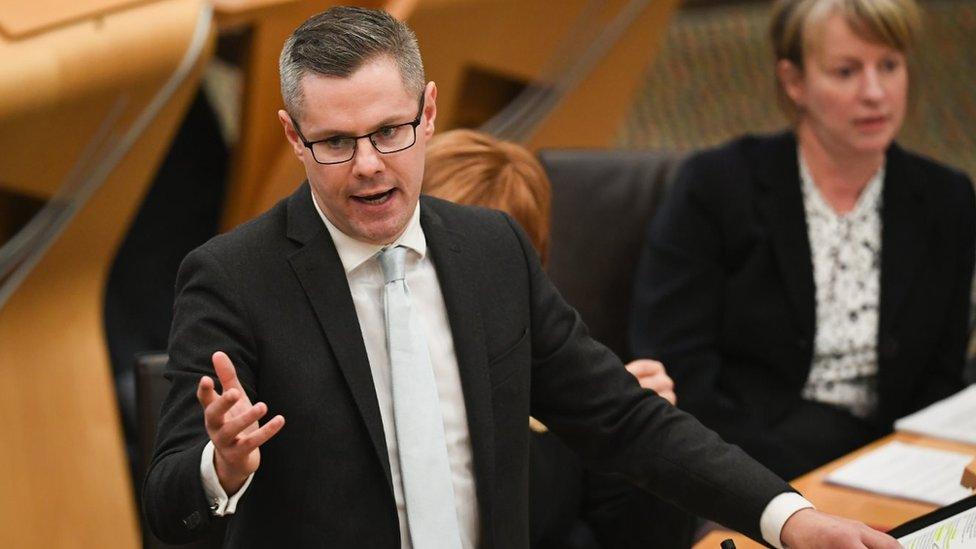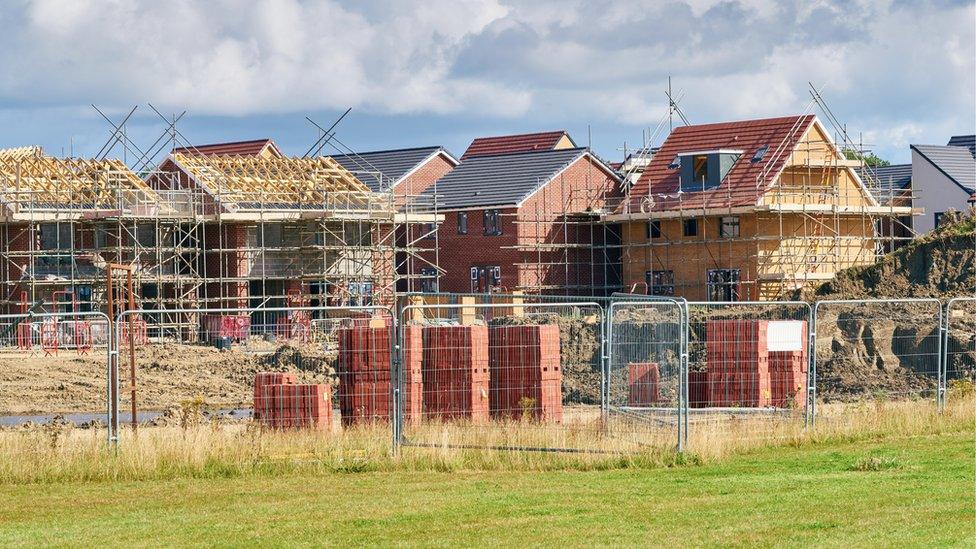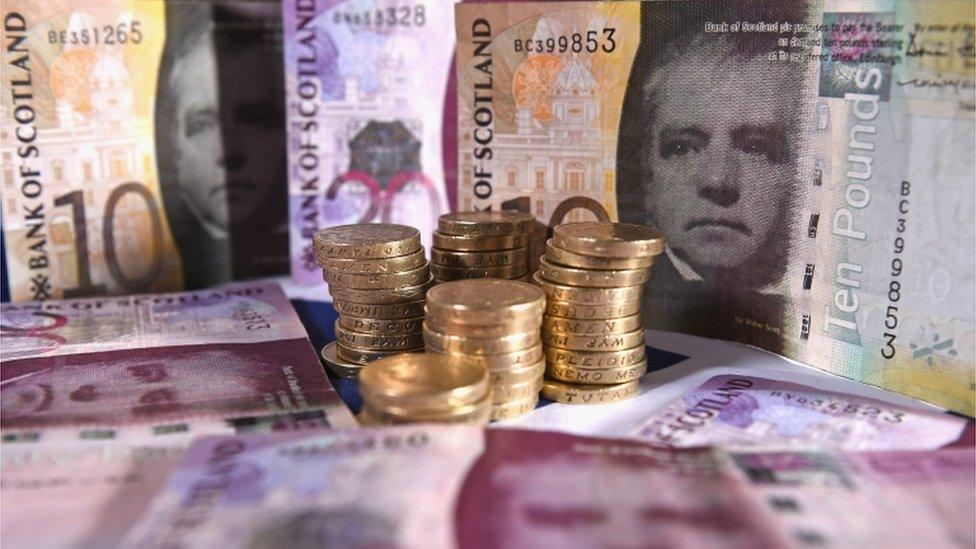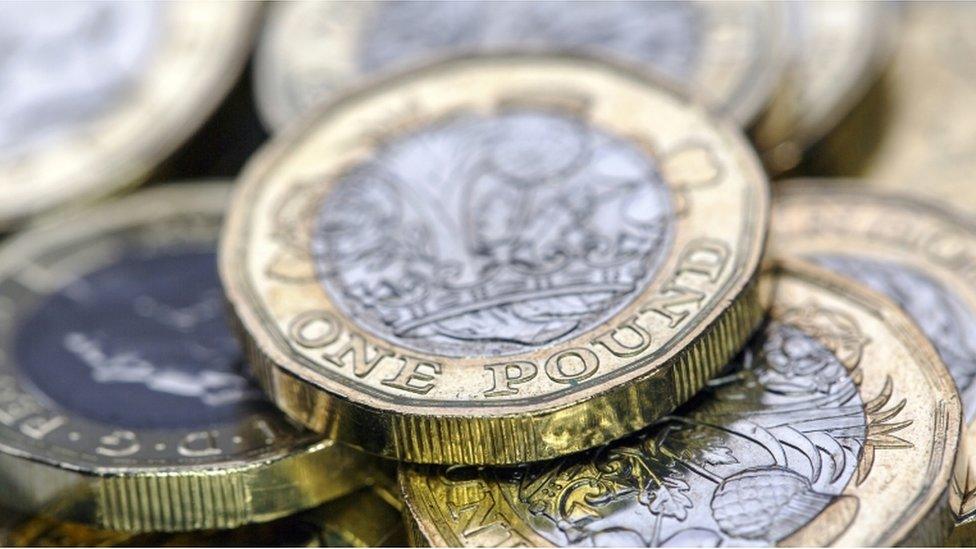Holyrood Budget: growing pains
- Published

A good budget requires a rabbit to be pulled from the finance minister's hat. That's "good" in the journalist's sense that it's at least interesting.
As a financial magician, Derek Mackay still has plodding patter. Last year's budget speech from the finance secretary, likened to a pupil reading a lesson at the school carol service but only under protest, had improved to the point of sounding a bit like Jackanory.
But when he reached into his hat of magic tricks to give his budget a bit of wizardry, it seemed as if said rodents had been breeding. Like rabbits.
Not one new tax band, but two. A rate hike here, a cut there, contriving to make Scotland both the highest and lowest taxed part of the UK.
By the time he sat down, Mr Mackay's bunnies were hopping all over Holyrood and beyond, their whiskers twitching at the prospect of some green shoots for a nibble.
Unfortunately, those are the frosty winter shoots on which an economic recovery depends.
Business boost
At first glance, this looked a politically astute budget. Going further than expected for the NHS. A raft of measures to please the business lobbyists. A big wad for rural broadband.
Most of those who speak for business were willing to welcome most measures, particularly on business rates. The tourist sector was particularly positive about both business rates being linked to a lower inflation index, and broadband reaching hotels on the periphery.

Housebuilders like the business rate changes too, and a small cut to the Land and Buildings Transaction Tax levied on first time buyers. But the rest of the property sector was disappointed there wasn't more change to the LBTT, which has put a dampener on things towards the upper end of the market.
Engineering Scotland liked the look of more research funding. The Scottish National Investment Bank is seen positively.
The Federation of Small Businesses saw some positives, but remarked that it had sought "ballast in choppy markets, but instead the Scottish government steered into uncharted economic waters".
Experts and analysts have more doubts than business. Reform Scotland, the think tank, thinks the tax cuts bring unnecessary risk and could lead to lower revenue.
IPPR Scotland reckons a lot of the tax cut on low earners will go to second, part-time earners in better off households, who may not be the most deserving.
The Chartered Institute of Taxation noted the potential for some anomalies, as the new starter rate becomes entangled with the tapering of Westminster's benefits system.
Hargreaves Lansdowne, the wealth managers, note that tax relief on pensions may now require a lot more paperwork.
Seismic change
Politically, the tax reform showed Scotland can go its own way, without necessarily frightening the horses. With a bit of take and give, the reform is expected to bring in an extra £164m - merely 1.3% up on an income tax take of nearly £12bn.
It had most of what will be needed to win over the Scottish Green MSPs with whom Mr Mackay hopes to get his budget over the line at Holyrood.

But economically, the seismic change to Scotland's income tax is likely to overshadow one very small, very significant number that wasn't even in the budget speech: 0.7%.
That's the amount by which the Scottish Fiscal Commission (SFC) expects the economy to grow next year.
For three years after that, growth is forecast to remain below 1%. Way off in 2022, it rises to the unimpressive heights of 1.1%.
The UK growth forecast, from the Office for Budget Responsibility, was the main, unwelcome surprise of Phillip Hammond's November budget. Conceding it had been over-optimistic about Britain's return to productivity growth, it adjusted to the reality of very slow improvements.
That delivered a growth forecast for next year of a dismal 1.4%. So using parallel assumptions about Scotland's productivity, which has been going backwards of late, the SFC forecasts a growth rate of only half as much. Some of that gap can be explained by faster population growth south of the Border, but not all.
Stark and starker
In a cautiously worded document from the SFC, the warnings are stark: "The growth that has been achieved in recent years has been driven by factors which include a boom in the construction industry, strong labour market growth, a falling savings ration and support form the oil and gas industry. These factors are unlikely to continue to support growth to the same extent in the coming years.
"Future downside risks include the UK's changing relationship with the EU, a weakening outlook for global trade, Scotland's industrial and demographic structure and weak onshore demand linked to activity in the oil and gas sector."
On earnings, it's starker still: "Real household disposable income [that's the useful stuff that matters, including tax and benefits] is not expected to see any growth until 2020-21 because of a combination of slow wage growth, very limited employment growth and inflation".
Mind the gap
And much of this has to do with productivity being so weak, having "a profound impact on GDP and the Scottish economy as a whole".
This downgrade in growth forecast is measurable when compared with the Scottish government's forecast last February. Things have taken such a downward lurch that the increase in tax rates is wiped out by the reduction in tax revenue.

Next year, Derek Mackay's income tax changes are expected to add £164m to the total revenue, yet total revenue is down more than £200m on expectations in February.
That gap widens rapidly over subsequent years. By 2021-22, contrasting February's estimate with this month's figures adds £188m from the change to tax bands and rates, yet the total tax take is down by more than £900m - from £14.59bn to £13.66bn.
Welcome to the world of tax revenue volatility, or what they sometimes like to call buoyancy. It's an exciting new world for MSPs, but forces them to think much harder about the ways in which growth can be increased.
One last question that puzzled me about Derek Mackay's speech. Was this tax rise a one-off or not?
Taxpayers who are being asked to pay more might well be willing to accept such incremental change this year, but probably want to know the big picture and the further horizon.
Will higher earners still be paying to counter Westminster's spending squeeze - which is expected to last into the mid-2020s - with further, unending tax hikes?